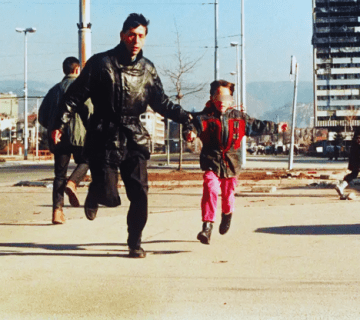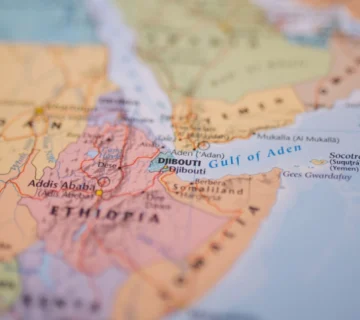As the world’s newest nation, having gained independence from Sudan in July 2011, South Sudan has faced its fair share of challenges for such a young nation. In 2013, the civil war broke out, shortly disrupting elections, displacing millions of people, and leaving tens of thousands dead and many more wounded. In January 2014, a ceasefire is signed but was not respected for several weeks. Further talks in February 2014 failed to end the violence that displaced more than a million people by April. In the same year, peace talks begin in the Ethiopian capital Addis Ababa and drag on for months as fighting continues.
The hostilities in South Sudan continue against a complex backdrop of competing for regional and bilateral initiatives to resolve the conflict. These efforts, however, suffer from several defects, including inadequate oversight, lack of enforcement and the absence of an integrated, coherent plan for sustainable peace, giving the government an opportunity of exploitation these divisions. IGAD, the United Nations Security Council, and an African Union panel are currently some of the conflict resolution initiatives in the country.
Conflicting interests coupled with rivalries in the region make it increasingly difficult for sustainable peace to be realized in South Sudan. Uganda, for example, has been a longtime supporter of the Sudanese People’s Liberation Army. When South Sudan went into civil war in 2013, Uganda became party to it by picking sides, hoping to prevent the government from falling into the hands of the rebels. Uganda feared that these rebels would eventually align with their long-term regional rival Sudan. Not only will Uganda’s national interests be achieved when there is a peaceful transitional government in place in South Sudan, but they also seek to gain economically. It is, therefore, in Uganda’s best interests that their South Sudanese counterparts prioritize political rather than military solutions to ongoing conflicts; support national dialogue to increase the transitional government’s inclusivity, and encourage better relations between Juba and Khartoum on key bilateral issues.
Uganda started by framing their intervention as a humanitarian mission. Its troops secured the airport and other key infrastructure in Juba, the capital of South Sudan, enabling the evacuation of thousands of its citizens and other foreigners. Ugandan officials claimed they helped avert a potential Rwanda-style genocide, as the spiraling violence saw both sides accuse each other of massacring civilians on the basis of their ethnicity. Uganda’s interest in a stable and friendly South Sudan is manifold. For instance, Uganda quickly became a critical trading partner of independent South Sudan, exporting goods ranging from coffee and shoes to vehicles and steel worth hundreds of millions of dollars annually. Moreover, thousands of Ugandans have taken up residence in South Sudan, attracted by the opportunities of an economy rebounding from years of war.
After South Sudanese independence from Sudan, Khartoum lost an estimated 75 percent of its crude oil production, access, control and the economics around it. In 2012, the two countries came close to war following disputes over the oil revenues and deadly skirmishes over their partly disputed border. However, relations improved markedly after President Kiir and Sudan’s President Omar Al-Bashir signed a new deal on the sharing of oil income later that year. Khartoum had supported Kiir in the hope that he could re-establish a strong government able to control the border as well as keep the oil flowing. Earlier, Khartoum sided with Machar, but now they could also “reconsider its alliances” if those other rebel groups strengthened their reported deployment alongside Kiir’s forces. Greater involvement by Sudan however, could cause friction with other regional actors as well as opposing sides in South Sudan. The prospect of intensified proxy conflict between Uganda and Sudan has added urgency to the regional diplomatic efforts.
In as much as Ethiopia’s interests in South Sudan are not as pronounced as other countries in the Horn of Africa region, it does not want war in South Sudan just yet. With the ongoing unrest in neighboring Somalia, Ethiopia cannot afford to get entangled in yet another ‘brawl’ with another country. Much of the population of Ethiopia’s western border region of Gambella shares the same Nuer ethnicity as many of the supporters of Machar. This raises the possibility that some Ethiopians might provide shelter to South Sudanese rebels, or even more. Addis Ababa is hosting the mediation efforts by IGAD. Speculations abound that the diplomatic efforts by Ethiopia are as a result of its rivalry with Kenya. Some Ethiopian officials believe Nairobi gained too much economically and diplomatically from its role in helping secure the 2005 agreement that paved the way for South Sudan’s eventual secession.
Just like Uganda, Kenya shares the belief that continuous war in Juba will hinder business and lead to the influx of refugees. Kenyans have invested heavily in banking, insurance, aviation, construction, hospitality, information and communication technologies, transportation and wholesale, and retail trade. Looking ahead, Kenya has also sought to offer Juba an alternative route for its oil exports. Nairobi has plans for roads, railways, and pipelines that would feed a giant new port in Lamu on the Indian Ocean coast – ambitious projects that also involve Ethiopia and Uganda and whose feasibility depends partly on the stability of South Sudan. Relations between Kenya and Uganda are strong, and Nairobi has voiced its support for Kampala’s initial intervention in South Sudan
The divided interests in South Sudan from regional actors make it more difficult for IGAD to come up with an effective and conclusive peacemaking strategy. To the contrary, it only strengthens such rivalries. There has been no comment in recent months from IGAD or the African Union about a timeline for resumption of peace talks. Until there is a movement toward interest convergence and recognition by regional and international partners of the unsustainability of the status quo, peace in South Sudan may remain elusive with unacceptable human, material and economic consequences for the region.
Brig Gen (Rtd) George G. Kabugi is a Defence and Security expert at the HORN Institute.



